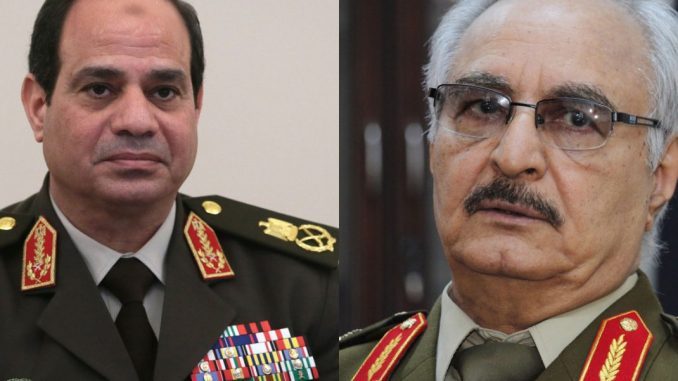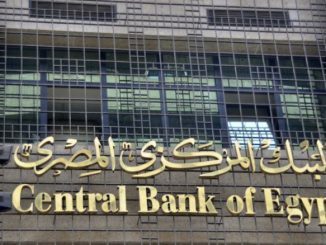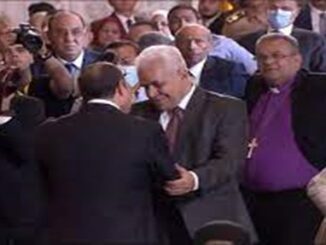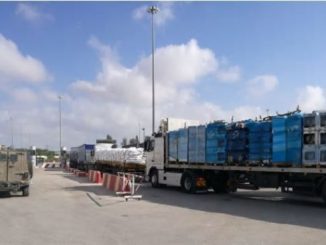
Warlord also understood to have private support of Saudi Arabia and the UAE
Khalifa Haftar, the Libyan warlord bombarding Tripoli in an attempt to oust the country’s UN-recognized government, has won unequivocal support from the Egyptian leader, Abdel Fattah al-Sisi, his closest political ally.
“The president affirmed Egypt’s support in efforts to fight terrorism and extremist militias to achieve security and stability for Libyan citizens throughout the country,” Sisi’s office said on Sunday.
It is thought Haftar also has the private support of leaders in Saudi Arabia and the United Arab Emirates.
The Cairo meeting came amid reports the Italian security services were warning that Libya could become “another Syria”, as fighting and general instability could prompt thousands more people to try to flee across the Mediterranean to Europe.
Haftar has defied international calls to halt his battle against fighters loyal to the government of national accord (GNA) based in Tripoli, the capital. The warlord supports a parallel administration based in Libya’s east. Egypt has provided funding and arms to Haftar’s “Libyan National Army”, seeing him as a bulwark against Islamist militants.
As fighting raged in the capital, the death toll since Haftar’s assault began on Thursday was put at 121 by the UN World Health Organization, with nearly 600 wounded. More than 13,000 civilians have been displaced by the fighting, which has included air raids that have hit schools.
In a message directed at Haftar, the UN’s special envoy for Libya, Ghassan Salamé, said: “Our position will not change. You’ve learned and tasted war. No matter how obstinate one becomes, there is no solution except a political one.”
Before last week, Salamé believed he had finally negotiated a deal that would have seen a painful reunification of Haftar’s forces in the east with the government in the west, thereby creating a single set of economic and political institutions across the country for the first time in four years.
Haftar’s assault, as well as thwarting that plan, threatens to disrupt oil supplies. The chairman of the Libyan National Oil Corporation warned that supplies faced their biggest threat since 2011, when Nato-backed Libyan forces ousted Muammar Gaddafi.
With Haftar seemingly bogged down on the outskirts of Tripoli, Sisi was probably the single external leader who might have persuaded the Libyan warlord to accept a ceasefire.
Italy, the former colonial power in Libya, with extensive oil investments, is trying to protect the Tripoli-based government, led by Fayez al-Sarraj. Italy’s coalition government has ruled out any use of military force.
Italian newspapers reported that Italian security services had warned that 6,000 people might try to flee the fighting, and that human traffickers were trying to take advantage of the chaos. The International Organization for Migration said it was impossible to predict the numbers that might try to leave detention camps, some of which are administered by the UN. The Italian interior minister, Matteo Salvini, has insisted Italian ports will remain closed to all migrants.
Italy’s already fraught diplomatic relations with France have been put under further pressure by Haftar’s attack. Last week France blocked a draft EU resolution that would have condemned him and called for him to retreat.
The GNA vice-president, Ahmed Maiteeq, was due in Rome on Monday as part of a tour of Europe including Berlin and London, where he will try to enlist support for a ceasefire – only if Haftar’s forces retreat to pre-existing positions.



